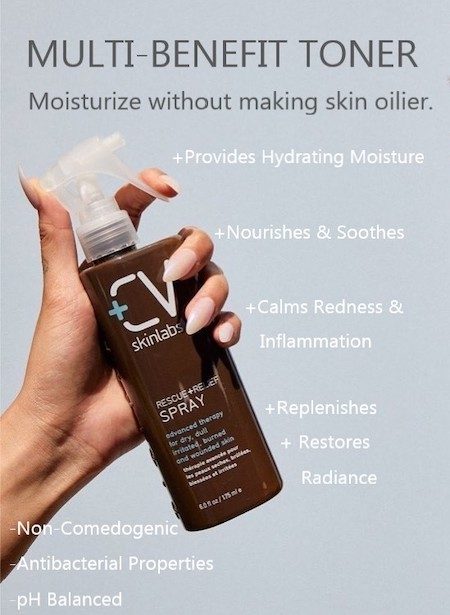Moisturizer for oily skin in winter: is it necessary?
If you have oily skin, you may be wondering this. Your skin often feels sufficiently hydrated.
However, winter weather, with its cold, harsh temperatures and dry indoor heating, can strip the skin of its natural oils.
This can cause the skin to produce more oil in winter than at any other time.
What should you do? We explore this challenging problem in this post!
What is oily skin?
Oily skin is exactly what it sounds like: skin that is oilier than normal.
All skin types naturally produce oil called ‘sebum’. The sebaceous glands in the skin, microscopic glands in your hair follicles, secrete sebum. This is an oily substance that helps protect your skin and prevent it from drying out. It consists of different types of lipids (fats), such as glycerides, free fatty acids, wax esters, squalene, cholesterol esters and cholesterol.
Oily skin occurs when the sebaceous glands are more active than normal. They produce too much sebum, which can lead to oily or “oily” skin, clogged pores and acne.
Moisturizer for oily skin: How do you know if you have oily skin?
You probably already know if you have oily skin, but just in case you’re not sure, here are some signs:
- Your skin usually looks shiny
- It feels oily
- You struggle with frequent acne breakouts
- Stained sheets are always in your bathroom
- You have larger, more noticeable pores
- Blackheads are common on your skin
- Your skin rarely feels tight or dry
- It is common to find oil on your phone or clothes
- Others in your family have oily skin
- Make-up seems to slide off your face
Here’s the good news: While oily skin can clog pores and lead to more breakouts, it also helps preserve skin and slow the development of fine lines and wrinkles.
What causes oily skin?
The biggest cause of oily skin is genetics. It tends to run in families, and you were probably born with it.
However, there are other factors that can make oily skin worse. For example, if you live in a warm, humid climate, you likely have more oil on your skin in the summer. Hormone fluctuations can be the cause of this.
Winter is the season that causes the most confusion about oily skin and hydration. People with oily skin in winter may experience the most skin problems. The wrong moisturizer can make your skin oily, but cold, dry air can dry out your skin and cause it to produce more oil.
Using the wrong skin care products
Using the wrong skin care products for your skin type can cause or worsen oily skin.
For example, some acne products are aggressive and can dry out the skin too much. This causes a rebound reaction where the skin produces evenly more oil, which makes oily skin worse.
If you have combination skin (oily only in the T-zone) but your cheeks are dry, using the wrong products in the wrong place can also make oily skin worse.
Piling up too many products
If you suffer from oily skin and acne, you may have bottles, jars, and sprays all over your bathroom cabinets. Using too many products, washing your face too often, or over-exfoliating can dry out and stress the skin to the point where it responds by producing more oil.
Skip moisturizer for oily skin
You may have heard that moisturizer causes oily skin, but that’s only if you use the wrong one!
If you have a product filled with dimethicones and petroleum ingredients, it can aggravate your oily skin, clog your pores and cause breakouts.
While you may want to avoid moisturizers altogether, that’s not a good idea.
If you don’t use moisturizer at all, your skin will dry out, even if it is oily. That’s because daily washes strip the skin of oil and without moisturizer to balance the effect, the skin will produce more oil to compensate.
If you use anti-acne products that contain salicylic acid and benzoyl peroxide, it is even more important that you use a moisturizer afterwards to balance your skin.
Moisturizer for oily skin plus other tips to keep it under control!
The best way to control oily skin is to use products that help balance the oil, rather than removing it completely.
In general, avoid thick and heavy creams. Choose a lightweight, non-comedogenic moisturizer with humectants (such as glycerin and ceramides to help support the skin barrier).
Look for products that help reduce or balance oil production without overdrying your skin.
Start with a gentle cleanser
Cleanse only twice a day (again after exercise if applicable), but don’t be aggressive. Stay away from soaps with fragrances or harsh chemicals and opt for non-clogging, oil-free cleansers that gently cleanse the skin.
Cleansers with salicylic and glycolic acids can help keep skin clear, but they can dry out the skin, so it’s important to use a lightweight moisturizer afterwards.
Also be careful with cleaning brushes and washcloths. Some of these are too aggressive and can cause friction on the skin, causing micro cracks, worsening acne breakouts and causing more oil secretion. Choose a gentle cleanser to penetrate the pores without disrupting the skin’s outer barrier.
Use a toner, but not a drying one
Most acne skin care lines offer an alcohol-based toner. These help kill germs and bacteria on the skin to prevent the development of pimples, but they also dry out the skin, which can make oily skin worse.
Try our Rescue + Relief Spray instead. It provides moisture without clogging pores, is oil-free and has a pH balance for the skin. It also has natural antibacterial properties. Using it will help your skin recover from the cleansing, soothe any inflammation or redness, and balance the skin as you prepare it to absorb moisturizer.

Use the right moisturizer
You may think that a moisturizer adds oil to the skin. But the right kind of moisturizer adds hydration, and that’s different.
Hydrated skin contains sufficient water. It looks plump, fresh and bouncy and has a more youthful appearance than skin without water. Dehydrated skin not only looks older, but it is also more vulnerable to inflammation (and breakouts), wrinkles and premature aging.
Moisturizing your skin can help balance your skin’s natural oil levels and prevent it from producing excess sebum.
The key is to look at the ingredients in your moisturizer. You want a clean product that doesn’t contain fragrances, alcohol, petroleum products (like mineral oil), and other ingredients that aggravate oily skin.
First, look for aloe vera. According to a Study from 2014Aloe helped reduce inflammation (common in acne-prone skin) while softening and moisturizing the skin. It also helps to balance the skin and is a key ingredient in all CV Skinlabs products.
Then look for the ingredients that help retain moisture. Petrolatum, mineral oil and other similar ingredients do that, but they are greasy and can clog pores. Choose other non-comedogne options, such as natural butters and oils.
Then choose moisturizers with hydrating ingredients such as glycerin, hyaluronic acid and alpha hydroxy acids.
In general, look for a lightweight lotion that is oil-free and non-comedogenic, which means it’s less likely to clog pores. We recommend our Calming Moisture. It contains aloe leaf juice as the first ingredient, contains natural oils and glycerin, and then adds triglycerides and antioxidants to help protect the skin and balance oil production.
It is a lightweight moisturizer that helps balance, soothe and treat redness, itching or swelling caused by acne or oily skin. Regularly recommended by dermatologists, it provides weightless hydration without leaving skin feeling clogged or greasy.
Finally, apply the moisturizer while your skin is still damp as this helps retain the water in your skin.
Use a face mask
Face masks can be very helpful if you have oily skin.
Try applying a clay mask about once or twice a week to absorb excess oil and reduce shine. Pay attention to your skin: if it starts to feel tight and dry, go back and use the mask less often.
Exfoliate gently
Exfoliating is a good way to remove dead skin cells from the skin’s surface, allowing the younger cells to come to the fore. This is also a good way to clear pores and reduce acne.
Just make sure you exfoliate carefully. Don’t overdo it. Over-exfoliating can cause a rebound oil-producing effect and can also make acne worse. Watch your skin for signs that indicate how often you should exfoliate.
Do you have a favorite moisturizer for oily skin?
Featured image courtesy of Polina Tankilevitch via Pexels.






